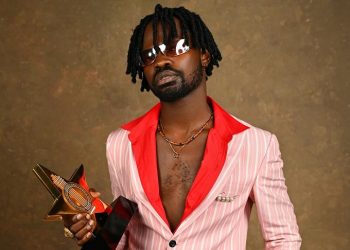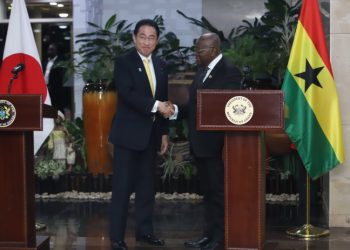
Introduction
The role of journalism in Ghana’s democratic journey has been pivotal. Since the country’s return to democratic rule in 1992, the media landscape has undergone a significant transformation.
The 1992 Constitution, which devotes an entire chapter (Chapter 12) to media activities, enshrines press freedom, liberalization, media plurality, and diversity as cornerstones of media practice. This legal framework has created an enabling environment for the media to thrive.
Of course, the proliferation of media institutions is a testament of the continous contribution of media to the country’s Development. Today, Ghana boasts of over 490 radio stations, more than 148 television stations (both analog and digital), over 5,000 newspapers and magazines, and an estimated 20,000 online media platforms. The establishment of media platforms is backed by Article 162(3) of the Constitution which explicitly states:
> “There shall be no impediments to the establishment of private press or media; and in particular, there shall be no law requiring any person to obtain a licence as a prerequisite to the establishment or operation of a newspaper, journal or other media for mass communication or information.”
This provision underscores the importance the framers of the Constitution placed on media freedom. It is this legal backing that has empowered the media to serve in the unofficial role as Fourth Estate of the realm and playing a crucial watchdog role in governance and national development.
However, one nagging question that remain unanswered is whether journalism is a vocation or a profession.? This question has remained a subject of debate among practitioners, academics, media experts and the general public. Importantly, with the increasing number of media platforms and the surge in the number of individuals identifying as journalists, there is the need to return to the debate as to whether journalism is a profession or vocation in the hope that the debate can be settled once and for all.
Evolution of Journalism in Ghana
Experts say before journalism became a structured field of study in Ghana, many practitioners learned on the job. Aspiring journalists worked in newsrooms, radio stations, and television studios under the guidance of seasoned professionals who taught them the art of news writing, reporting, and broadcasting.
According to historic accounts,this apprenticeship system was the primary mode of training before formal journalism education became widely available. It must be noted that some seasoned and best journalists were not trained on the job.
On the contrary, today, many universities in Ghana have dedicated faculties that offer journalism and media-related courses. This expansion reflects the growing recognition of the media’s role in a democratic society. As a result, individuals entering the field now have the option of acquiring formal education before practicing.
To formalize its membership, one of the criteria of Ghana Journalists Association (GJA) as to who qualifies to be a member, clearly distinguishes on-the-Job training relative to those who have gained journalism skills through some years of practice under and those who acquire academic knowledge to become journalists
To gain a deeper understanding of this issue, Mr. Bright Blewu, a past general secretary of the Ghana Journalists Association (GJA) and a veteran journalist with over 40 years of experience contributed to the debate by agreeing with definition that a journalist is:
“Someone who works gathering information in the form of text, audio, or pictures and processes it into a newsworthy form for dissemination to the public. He/she may go further separately to engage in analysis and commentary of the contents of the news.”
He supported the assertion that,
“The definition has no doubt become complicated because of the ever-growing importance of credible information in a digitalized world. Journalism plays a crucial role in establishing truth and trust in what goes on around us—be it politics, good governance and democracy, human rights and justice, and last but not least, technology. The journalist simply cannot be a master in all fields of human endeavor but definitely requires appreciable knowledge through personal efforts to undertake the process of information and education to help establish the facts and arrive at the truth.”
Mr. Emmanuel Amoako, former Deputy Editor of the Daily Graphic, a veteran with over 45 years of experience in journalism, stated that journalism had become a profession where anyone who can write sees themselves as a journalist, even without formal training.
He disagreed with that assertion, insisting that, formal training was essential.
He acknowledged the fact that, in the past there were a few exceptions, namely, Mr. Kofi Badu, who did not sit in a journalism classroom and yet was nevertheless exceptional as a journalist.
However, he stressed that there are deeper aspects of journalism that cannot be learned solely on the job.
“One must sit in a classroom to grasp the foundational principles, adding, that, classroom learning helped shape one’s mindset and prepares aspiring journalists for the realities of the profession.” “To me, journalism is a profession,” he concluded.
Mr Dave Agbenu, the outgoing editor of The Ghanaian Times, stated that journalism can both be described as vocation and a profession because, regardless of one’s educational background from any field, one can still practice journalism. “What is the difficulty is where to draw the line between the vocational and professional journalist.”
He explained the academic training and on the job training were not the same because on the job journalists learn the specific house styles and skills of writing of the media house
He emphasized that it was very important for every journalist to go through that process, which he described as the foundation of the journalism profession.
Dr James Asante, lecturer at the UNIMAC said that, you must undergo thorough training and acquire the requisite skills before practicing journalism. “When I entered the field, the reality was quite different on the ground.
Yes, journalism is a vocation, but we must distinguish between a vocation and profession. Journalism involves the process of gathering information, processing it, and presenting it with a target audience in mind. You are trained on how to research, collect information, and develop stories, so you emerge fully prepared for the field.
As for those without formal education who are still practicing journalism, many of them have received some form of on-the-job training. They’ve been trained in-house within various newsrooms, particularly at editorial desks. This includes learning how to develop story ideas, pitch news stories, understand what constitutes news, apply proper writing techniques, and use a camera to capture news content.
“So, in that sense, I agree with you that journalism can be both a profession and a vocation. However, I have always maintained that one must have the requisite training in order to practice journalism professionally.
Dzifa, a freelance journalist, sees journalism as a vocation. “I work not just for the money—even though money is important—but to serve humanity. I think about my stories even when I’m cooking for my children,” she said.
She described journalism as one of the few professions where there is no closing time. “You’re always learning new ways of writing from your seniors. It is a profession where the apprenticeship never truly ends,” she added.
Even though she has the requisite qualifications, Dzifa believes in-house training is essential to excel and become better in practice. “It’s one job where you are constantly on the lookout—phishing for new ideas or learning new techniques, and you become passionate” she explained.
Philip, a journalist with over 25 years of experience, agreed with Dzifa in describing journalism as a calling rather than just a profession. I never attended a formal journalism school; instead, l was trained on the job, driven by a passion for writing and exposing wrongdoing in society. “Journalism is what I eat, sleep, and wake up to,” he said. “It offers me a different perspective on life and deepens my understanding of issues. It’s my passion, and almost every day, I continue to learn and adapt to the evolving dynamics of the profession.”
A profession involves formal education, training, and recognised qualifications (Oxford English Dictionary; Wilensky, 1964), while a vocation is a passionate calling or sense of purpose, often pursued without formal credentials (Oxford English Dictionary; Palmer, 2000).
I believe that journalism can be seen as both: a profession needing skills and structure and a vocation fueled by a deep passion to inform and serve the public.
Finally, l think that journalism in Ghana has evolved from an apprenticeship-based practice into an academic discipline with structured training. However, the debate over whether it is a vocation or a profession remains unresolved. While some see journalism as a calling requiring passion, dedication, and commitment beyond academic qualifications, others believe that formal education and certification are essential to maintaining professional standards.
DISCLAIMER: The Views, Comments, Opinions, Contributions and Statements made by Readers and Contributors on this platform do not necessarily represent the views or policy of Multimedia Group Limited.
DISCLAIMER: The Views, Comments, Opinions, Contributions and Statements made by Readers and Contributors on this platform do not necessarily represent the views or policy of Multimedia Group Limited.
- President Commissions 36.5 Million Dollars Hospital In The Tain District
- You Will Not Go Free For Killing An Hard Working MP – Akufo-Addo To MP’s Killer
- I Will Lead You To Victory – Ato Forson Assures NDC Supporters
Visit Our Social Media for More




